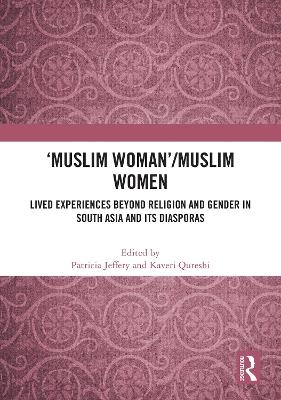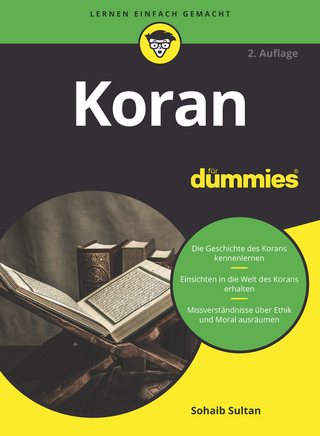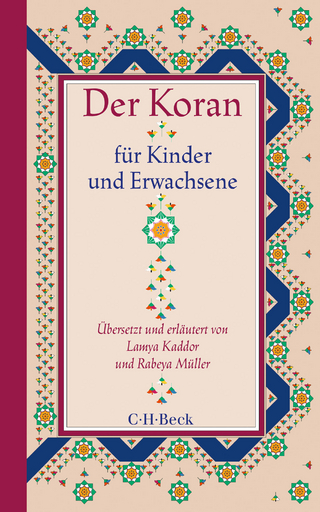
'Muslim Woman'/Muslim women
Routledge (Verlag)
978-1-032-87786-0 (ISBN)
- Lieferbar (Termin unbekannt)
- Versandkostenfrei innerhalb Deutschlands
- Auch auf Rechnung
- Verfügbarkeit in der Filiale vor Ort prüfen
- Artikel merken
This book addresses South Asian Muslim women’s lived experiences, whilst questioning dominant concepts of agency.
Negative, homogenising constructions of the ‘Muslim Woman’ are not the result of a knowledge deficit, but constitutive of Euro-American and Hindu nationalist forms of civilizational self-assurance. Portraying the richness and diversity of Muslim women’s voices and agency cannot, therefore, rectify discourses casting Muslim women as invisible or silent, so long as the vision of agency is shackled to dominant feminist precepts. Mindful of this problem, the book examines Muslim women’s legal agency with respect to the family, their claims-making upon the state, livelihoods, and the impact of male outmigration on ‘left-behind’ wives. Working across these domains of everyday life, contributors highlight how women’s vulnerabilities within their families dovetail with oppressions experienced in the local state, the labour market, and in the streets. Women’s economic locations continue to shape their agency in crucial ways, with upward mobility often entailing greater restrictions on women’s mobility and independence; yet the chapters caution against romanticising the ironic independence of poverty. Collectively, this volume showcases Muslim’s women’s diverse identities and desires that may be sidelined in dominant concepts of agency.
This book will be beneficial for scholars and students of South Asian Studies interested in gender justice, politics and the intersection of religion, culture, and identity. The chapters in this book were originally published as a special issue of Contemporary South Asia.
Patricia Jeffery’s research focuses on gender politics in South Asia. Her publications include Frogs in a Well (1979) and Confronting Saffron Demography (2006). Routledge is publishing two further books that address demographic change, communal politics and ‘jobless growth’, based on her long-term research in a Muslim village in Uttar Pradesh, India. Kaveri Qureshi’s research is threaded by concern with intersectional inequalities and how gender, race/ethnicity, class, caste and religion shape experiences of health and intimate/personal life. Her publications include Marital Breakdown among British Asians (2016) and Chronic Illness in a Pakistani Labour Diaspora (2019). She works in the UK and Punjab.
Introduction – ‘Muslim Woman’/Muslim women: Lived experiences beyond religion and gender in South Asia and its diasporas 1. Muslim daughters and inheritance in India: Sharīcat custom and practice 2. Courting agency: Gender and divorce in an English sharia council 3. Muslim marriages, the South African state and the courts: Between limbo, liberation, and the spaces for contestation in-between 4. Being seen: The political and bureaucratic entanglements of Muslim women in West Bengal 5. Gendering the everyday state: Muslim women, claim-making & brokerage in India 6. Life, labour, and dreams: One woman’s life in Old Delhi 7. Emotions, identity and the entrepreneurial self: Narratives of working Muslim women in rural India 8. Migration, patriarchy and ‘modern’ Islam: Views from left behind wives in rural northern Bangladesh
| Erscheinungsdatum | 18.10.2024 |
|---|---|
| Verlagsort | London |
| Sprache | englisch |
| Maße | 174 x 246 mm |
| Gewicht | 420 g |
| Themenwelt | Geisteswissenschaften ► Religion / Theologie ► Islam |
| Recht / Steuern ► Allgemeines / Lexika | |
| Recht / Steuern ► EU / Internationales Recht | |
| Recht / Steuern ► Privatrecht / Bürgerliches Recht ► Familienrecht | |
| Sozialwissenschaften ► Politik / Verwaltung ► Politische Theorie | |
| Sozialwissenschaften ► Soziologie ► Gender Studies | |
| Sozialwissenschaften ► Soziologie ► Spezielle Soziologien | |
| ISBN-10 | 1-032-87786-3 / 1032877863 |
| ISBN-13 | 978-1-032-87786-0 / 9781032877860 |
| Zustand | Neuware |
| Haben Sie eine Frage zum Produkt? |
aus dem Bereich


